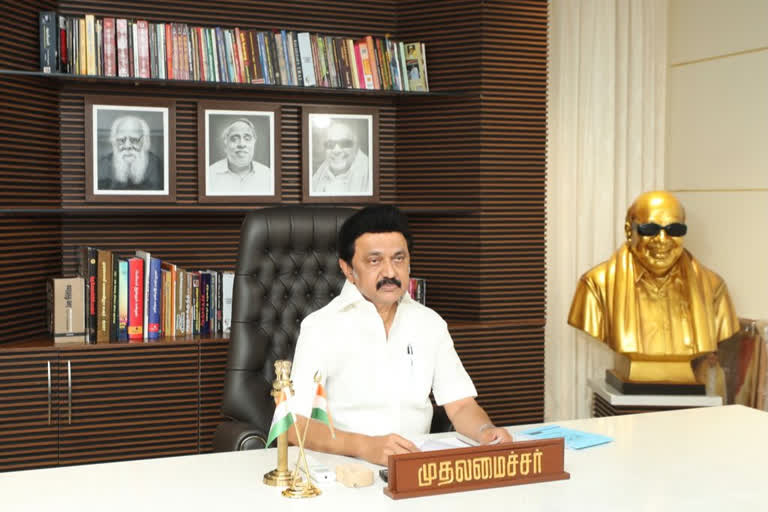Chennai: Known for its well equipped public health infrastructure, Tamil Nadu is among the few states with a high number of medical colleges. The state has 52 medical colleges of which 26 are government institutions. Further, it awaits the nod to commence admissions in 11 more colleges.
No wonder the state is opposed to NEET, viewing it as an onslaught on state autonomy in the domain of education. Given the ever growing chorus against NEET, there is political unanimity barring the BJP against the one-nation one test model.
On Monday, the Tamil Nadu Assembly passed a Bill for exemption from NEET. While the opposition AIADMK had voted with the government, only the BJP, with four members, staged a walk out from the House in protest.
Significantly, the Bill is identical to the one brought by the previous Edappadi K Palaniswami government but could not secure Presidential assent. The only new element in the present one is the inclusion of the reasoning of the Justice AK Rajan committee in the Statement of Objects and Reasons.
The panel had said that NEET is not an equitable mode of admission and favours the elite and the rich while its continuance would adversely affect the health infrastructure of the state.
Piloting the Bill, Chief Minister MK Stalin vowed to continue the fight against NEET and bring back Education to the State List. “The DMK government had started the legal fight to abolish NEET. Together without partners, we will carry the fight in all fora, including parliament, courts and the public domain and ensure social justice,” he said.
What does the state government propose to be a fair admission procedure in a post-NEET regime? The Bill provides for using the qualifying examination, viz., the Higher Secondary examination, as the sole basis for admission to undergraduate medical courses.
It also provides for normalisation of marks of students belonging to other streams/boards. It is a return to the pre-NEET admission system. For, the DMK government of M Karunanidhi, through a legislation, had abolished entrance examinations for professional courses.
The popular demand for abolition of entrance examinations was due to many elite private schools skipping plus one subjects and coaching alone becoming the norm.
In the event of Tamil Nadu securing presidential assent for its legislation, the state government will have freedom over medical admission except the 15 per cent seats of All India Quota (AIQ). Also, it has no control over the Deemed to be Universities.
Earlier, admissions under the AIQ were made through a national-level entrance examination in which the state does not have any role whatsoever. In the case of wards of NRIs who hail from the state, they were provided admission as per normalisation of marks.
As of now Students from other states and NRIs have to clear NEET to secure admission. To facilitate NRIs, NEET examination centres have been established at select cities abroad.
As per the data available with the National Medical Commission, Tamil Nadu with 26 government medical colleges and 16 private medical colleges has over 8000 seats for MMBS. Of this 5850 are in government colleges. The state is awaiting permission for 11 more medical colleges which would provide 1650 MBBS seats.
In the case of private self-financing colleges, they have to surrender 65% seats to the government, while it is 50% for minority institutions. Admissions to UG medical programmes in Tamil Nadu adhere to the 69% reservation in vogue.
Now, with Stalin girding up his loins, it will be a long drawn out politico-legal battle to reclaim lost space. But, the fight is in tune with the Dravidian movement's core ideology of securing State Autonomy.




